Celebrations and Family Trips
- In “Halloween: Celebrate Like a Catholic” (Catholic Culture), Jennifer Gregory Miller suggests 5 practical ways for families to mark the day.
- In “The Catholic Roots of Halloween, the Vigil of All Saints’ Day” (Vatican News), Christopher Wells writes, ‘[Halloween] is a day when Catholics celebrate the triumph of the Church in heaven, and the lives of the saints on earth.’
- Bishop David Konderla (Diocese of Tulsa) issued a helpful and brief practical statement on Halloween. He writes, “Over time, popular culture has made it difficult to discern the authentic spirit of this great feast, an important time when we, God’s pilgrim church on earth, rejoice in the lives of all God’s saints whom we wish to follow into eternal life.”
- Here’s a simple blessing for a child’s birthday (USCCB).
- “Inexpensive Birthday Party Ideas for Kids” (Blessed Catholic Mom) includes 10 suggestions.
- “Every Kid is Special (Three Days a Year)” (Catholicallyear.com) suggests highlighting three days: the birthday, name day, and anniversary of baptism.
In this brief but powerful homily, Pope Francis says that “family life is a series of pilgrimages, both small and big.”
Check out Fr. Paul Scalia’s “The Pilgrim Family” (The Catholic Thing). He writes, “Just as the Holy Family was formed by their pilgrimages to Jerusalem, so every Catholic family is to be a pilgrim community—one that has a clear destination, a journey to make, and companions on the way.”
In “Finding Faith as a Weary Pilgrim” (Denver Catholic), Aaron Lambert points out something important: “It’s a funny thing that happens when we choose to leave our comfort zone as men and women and travel as weary pilgrims: as we walk along these paths in faith, we end up discovering what faith really is.”
- Check out “Why is May the Month of Mary?” (National Catholic Register).
- Enjoy “Mary and the Meaning of Mother’s Day” (Denver Catholic).
Family Activities
- In “Family, Leisure, and the Restoration of Culture” (Conversatio), R.J. Snell observes, “Make the Sabbath sing. Make it taste good. Make it be like the way God is, generous and delightful. God, in our Catholic understanding, is a community of love and joy—that’s what the Trinity is in the end—but we can’t recognize God if we don’t have a taste for joy and love and generosity and hospitality.” Amen!
- In “Leisure: The Basis of Culture” (Institute of Catholic Culture), Fr. Paul Scalia (Diocese of Arlington) is a great entry-point or refresher for contemplation, worship, leisure, and renewal.
- If you’re ready to take a deeper dive, then here is Josef Pieper’s Leisure: The Basis of Culture, Including the Philosophical Act.
- Pope St. John Paul II’s famous “Letter to Artists” offers all of us an inspiring 101 course on the role of beauty in the Christian life. It’s also a fitting meditation for parents to reflect upon, as we consider how our family life and Trinity House can offer our children an introduction to the beauty of who Jesus Christ is.
- In “Journal Your Way to Spiritual Growth: Improve Prayer Time by Putting Pen to Prayer” (National Catholic Register), Katie Warner provides a great overview of different approaches to journaling.
- “Pope Benedict XVI’s Very Concrete Advice for Being a Little Holier Every Day” (Aleteia) includes this: “Every day, take note of a sign from God.” Pope Benedict XVI said, “How often does God give us a glimpse of his love! To keep, as it were, an ‘interior journal’ of this love would be a beautiful and salutary task for our life!”
- In “5 Benefits of Journaling for Mental Health” (Positive Psychology), Jeremy Sutton shows social science data surrounding journaling can also be a motivator.
- Just google “reading list” and you’ll find enough links for a lifetime. Check out this compilation of “Best Catholic Books of All Time” (Word on Fire) by Brandon Vogt.
- Some online studies point to an American average of 12 books per year. It is possible to read 33 books per year if you read about 30 minutes a day, and a growing number of people striving to read a book every week.
- In “Take Up and Read: The Wonder of Reading Aloud,” we shared a number of links for great reads.
- In this brief and powerful excerpt from The Enchanted Hour: The Miraculous Power of Reading Aloud in the Age of Distraction (Amazon), author Meghan Cox Gurdon writes, “In the tech era, we can all benefit from what reading aloud supplies, but with children, the need is urgent. Many young people are spending as many as nine hours a day with screens. They are surrounded by technology—it informs their world, it absorbs their attention, it commandeers their hands and eyes—and they need the adults in their lives to read books to them not despite that but because of it.”
- In “The Benefits of Reading Out Loud to Your Kids” (Get Action AOM), Jeremy Anderberg writes, “Create a book club culture at home. Rather than making reading simply another assignment, or forcing your kids to sit calmly while you read to them and explain the story, work to create a book club culture in your home.” Anderberg suggests a baseline: read aloud “~10 minutes a day, ~3 times a week.”
- Learn about the benefits of starting a family reading contest for your kids.
- In “Reading Aloud to Someone Else is a Gift of Self and Presence” (Aleteia), Elizabeth Scalia writes, “Reading to someone is a different way of saying to them, ‘I am present and here for you.'”
- If you have not read the The Chronicles of Narnia yet, it is never too late!
- Check out The Lives of the Saints: For Every Day in the Year by Fr. Alban Butler.
- Checkout “Uplifting Books for Housebound Children” (Institute for Family Studies).
- Maria Augusta Trapp’s lovely reflection, “Catholic Activity-Storytelling” admits that it’s “not an easy art” and that many “have given up before trying hard enough.” And yet, she claims, “There is no substitute for story-telling.”
- “By being a storyteller in the full, rich, integral way, following the rules of storytelling, she was giving glory to God,” shares Bishop Robert Barron in this 2-min. trailer to “Flannery O’Connor: The Storyteller.” And so can we!
- Check out Marcel Lejeune’s 7 Ways Parents Can Avoid Summer Burnout (Our Sunday Visitor).
- It’s time to avail ourselves and our families of resources like Our Sunday Visitor’s “A Summer Reading List for Catholic Kids of All Ages.”
- In this Russell Moore Show podcast interview, Jonathan Haidt discusses his book, “the relationship between mental health and religion…and how religious communities are taking the lead in providing some protection from mental health problems.”
Family Meals
- If you just skim the first few pages of “The Importance of Family Dinners VIII” (Columbia University), you’ll be amazed at the positive correlation between teens’ emotional health and the number of times per week they have dinner with their parents.
- In “Liturgical Living for Beginners: Start with Food” (Blessed is She blog), Grace Bellon gives us a feel for how her dinner table reflects the liturgical calendar in August. “Keep it simple,” she advises, and “talk about the connection between the feast and the food” as a way of “living liturgically.” Note her tie-in to figs and St. Bartholomew.
- Check out “Catholic Recipes for the Liturgical Year” (Catholic Culture). Each recipe lists one or more feasts (lower right-hand corner) that can be linked to the meal.
In “The Last Supper and the Ritual of Family Meals” (The Catholic Register), Evan Boudreau notes, “Sixth- to 12th-grade students who ate 5-7 family dinners per week had significantly lower odds of engaging in a number of high-risk behaviour patterns such as alcohol, drugs and tobacco use, depression-suicide, violence, antisocial behaviour and school problems compared to those who typically ate 0-1 (family) dinners.”
“10 Tips to Make Family Dinner a Priority” (Blessed Catholic Mom) includes a few favorite ideas of ours, such as “put all the devices away” and “tell stories.”
- In “From Siege2Surge: Mess” (The Arlington Catholic Herald), Soren reflects on the importance of prioritizing family mealtimes.
- “How Eating Like a Catholic Can Change Your Life” (Aleteia) by Zoe Romanowksy features an interview with Emily Stimpson Chapman, author of The Catholic Table: Finding Joy Where Food and Faith Meet.
Grandparents and Family Memories
- In remarks while in Philadelphia in 2015, Pope Francis memorably said, ‘Grandparents are the living memory of the family. They pass on the faith; they transmitted the faith to us.’
- Check out “The Gift of Grandparents: How the Older Generation Helps Teach Grandchildren the Faith” (National Catholic Register) by Joseph Pronechen.
- Catherine Wiley is “On a Mission for Catholic Grandparents” to share the faith with grandchildren.
- “Prayer for Grandparents” by Pope Benedict XVI is a great prayer to say individually or as a family.
- Check out “Grandma Camp” (Focus on the Family) by Ruth Alewine Page.
- “Grandparents: Keepers of the Family’s Stories” (For Your Marriage) by Deacon Gary and Kay Aitchison includes over 10 practical ideas such as family cookbooks, field trips, and family historical sites.
- In his Message of His Holiness Pope Francis for 54th World Communications Day, Pope Francis reflects on the role of storytelling. He writes: “We need wisdom to be able to welcome and create beautiful, true and good stories…We need stories that reveal who we truly are, also in the untold heroism of everyday life.”
- In “The Power of Your Story,” (Focus on the Family), Ed Chinn writes, “Our family stories carry the imprint of God’s destiny and love.”
- In “Telling Family Stories: Why Capturing Family Memories Matters” (Leadership Story Lab), Esther Choy reports that “Children who have the most confidence have a sense of ‘intergenerational self’ and ‘They know they belong to something bigger than themselves.'”
Liturgical Living
- “Getting Sunday Right: Family Rediscovers the Power of the Sabbath” (Crux News) includes some great insights, including this: “So Sunday is about rest, but it’s a resting in the Lord, not just resting from activity.” And this: “It requires a shift in mindset. It’s a reorientation to who I am, what I am created for, and who I am in God’s plan.”
- In “A List of Resolutions for Your Liturgical New Year” (Our Sunday Visitor), Ava Lalor reminds us that the beginning of the liturgical year of the Church offers us a fresh start.
- In “What Catholics Should Know About Ordinary Time” (Catechist), Donna Frasier suggests that Ordinary Time is a time for “conversion, maturation, and quiet growth.”
- Check out The Catholic All Year Compendium: Liturgical Living for Real Life (Amazon) by Kendra Tierney.
- Consider how why living the liturgical year is important in “Living the Liturgical Year at Home – How to Get Started” (Catholic Icing) by Lacy Lynch.
- The 2021: Theology of Home Planner (Amazon) by Carrie Gress can help you organize and plan your life according to the liturgical calendar.
- Check out Catholic All Year, a blog (Catholic Support Services) by Kendra Tierney
- Carrots for Michaelmas: Cultivating a Catholic Family is a blog by Haley Stewart about cultivating a Catholic family.
Religious Freedom and Civic Duties
- In “Religious Freedom Week 2021,” Bishop Burbidge (Diocese of Arlington) writes, “We have the truth, and we must be bold enough to stand up and proclaim it, no matter the cost. May Our Lord give us strength and wisdom for the work that lies ahead.” Check out the Arlington Diocese’s religious freedom resource page.
- The U.S. Conference of Catholic Bishops has assembled some religious liberty prayer resources that include downloadable prayer cards. For family prayer, why not begin including a prayer for religious freedom as a means of forming our children in the faith.
- “For God and Country – A Catholic Guide on Patriotism” (Seton Magazine) by Jennifer Elia offers 6 practical ideas for families.
- This beautiful Prayer for America (1791) was written by Archbishop John Carroll, the first U.S. bishop.
- Looking for a way to be more specific as you pray for our country? Focus on the Family has offered this helpful “31 Days of Prayer.” Perhaps you could also choose one of these prayers (United States Conference of Catholic Bishops) to include in your family prayer.
- Fasting is a powerful form of prayer. Consider fasting from one or more meals, or an entire day, with a specific intention for our country. Here’s a helpful list of Friday fasting intentions to help you get started.
In “The Virtue of Patriotism” (Catholic Link), Will Wright provides clarity on love for one’s own country, as well as practical suggestions, including serving our fellow citizens with our corporal and spiritual acts of mercy.
- We recommend reading Pope Francis’ two, inspiring homilies (3/6/21 homily and 3/7/21 homily) from his 2021 apostolic visit to Iraq. These homilies can help us to renew our prayers for persecuted fellow believers throughout the world. Pope Francis says, “The Church in Iraq, by God’s grace, is already doing much to proclaim this wonderful wisdom of the cross by spreading Christ’s mercy and forgiveness, particularly towards those in greatest need.”
Sports
- Check out our feature, “Kids’ Sports: How Much is Too Much?” (For Your Marriage).
- If you have time for a 30-page deep dive into the Church’s fundamentally positive perspective on sports, check out “Giving the Best of Yourself: A Document on the Christian Perspective on Sport and the Human Person” from the Vatican. And here’s a brief summary (Denver Catholic) of that document.
- In “Sunday Sports and Honoring the Third Commandment” (National Catholic Register), E. Christian Brugger writes “Each Christian family involved in Sunday sports has a serious duty to assess whether their participation contributes to or militates against the rest that the Third Commandment means to protect.”
- In “Follow the Bouncing Ball: Sports from a Christian Family Perspective” (Focus on the Family), Lainna Callentine unpacks four concepts for parents to keep in mind.
- Check out hockey-playing Bishop Thomas Paprocki’s Holy Goals for Body and Soul: Eight Steps to Connect Sports with God and Faith (Amazon).
Technology
- In her review of The Anxious Generation, “Stop Scrolling, Start Creating: A Wake-Up Call for Catholics” (Catholic Spirit), Christina Capecchi writes, “Adults are also addicted, which
- In “Mother Theresa’s Simple (Really Simple!) Trick for Becoming Closer to Jesus” (Aleteia), Frank Kleefeldt reminds of us of how we can do better instead of turning to media first thing in the morning. In addition, watch “The First Thing Mother Teresa Did Every Morning” (Franciscan Media).
- Dr. Michael Horne’s The Tech Talk: Strategies for Families in a Digital World (Amazon) and Andy Crouch’s The Tech-Wise Family: Everyday Steps for Putting Technology in Its Proper Place (Amazon) each provide suggestions for big-picture strategies.
- In “In Praise of Digital Minimalism” (The Arlington Catholic Herald), Soren provides a summary of some key points in Cal Newport’s excellent Digital Minimalism: Choosing a Focused Life in a Noisy World.
- In “A Powerful Prayer Before Logging on to the Internet” (Aleteia), Philip Kosloski points us to a beautiful prayer written by St. Thomas Aquinas.
- In “How Are Screens Influencing Us?” (Family Life podcast), David Kinnamen and Mark Matlock share that 15-23 year-olds typically spend “about 2,700/2,600 hours a year” on screens. In contrast, “the average teenager is taking in about 153 hours of spiritual content [a year].”
- In “Why Our Screens Make Us Less Happy” (TED), psychologist Adam Alter offers a good overview of the impact of screen-time.
- In The Shallows: What the Internet is Doing to Our Brains (Amazon), Nicholas Carr discusses how instant gratification is undoubtedly affecting our ability to sit with the Lord in silence. “What the Net seems to be doing is chipping away my capacity for concentration and contemplation,” Carr writes. “Whether I’m online or not, my mind now expects to take in information the way the Net distributes it: in a swiftly moving stream of particles. Once I was a scuba diver in the sea of words. Now I zip along the surface like a guy on a Jet Ski.”
- In “How Should We Think about the Age of Distraction” (The Catholic Spirit), Fr. Mike Schmitz comments on our “constant desire to be somewhere else” and our “constant state of distraction.” He asks, “How many of us can stand in line, sit in a waiting room, or simply be by ourselves without giving in to the constant pressure to be somewhere else by turning to our phone or device?”
- Check out “Digital Technology and Family Life” (Made for Love podcast).
- In “Getting Real About Screen Time Amidst the Coronavirus” (Institute for Family Studies), Dr. Jean Twenge and Professor Brad Wilcox offers a scholarly and big-picture view on trends in our culture and can prompt us as parents to reassess the role of media in our kids’ lives.



